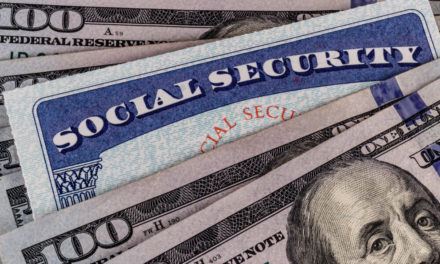The COVID-19 pandemic has made its way to the U.S. and while it has affected most facets of life, hammering the stock markets and the economy, the question remains: How will the coronavirus affect Social Security?
There’s no doubt the U.S. is reeling right now as millions across the nation stay at home, forcing businesses to lay off workers and adjust their outlooks for the future.
While Social Security may not be directly impacted through policy change or a similar course of action, it will definitely feel the ripple effects.
From lower payroll taxes collections hurting future funding to lowered cost-of-living-adjustments, here are three biggest ways the coronavirus will affect Social Security.
3 Ways Coronavirus Will Affect on Social Security
Lower Payroll Tax Collection
Social Security is funded through a 12.4% (split between employer and employee) tax on earned income up to $137,000 for 2020, but that collection relies on people staying in the workforce and earning wages.
The COVID-19 pandemic has caused many businesses to either close entirely or greatly downsize their output and lay off hundreds of thousands and potentially millions of Americans for an uncertain amount of time. With a smaller workforce comes a smaller amount of taxes collected.
In 2018, the Social Security Administration collected $885.1 billion from the payroll tax alone, and the benefits program is due to become insolvent by 2035.
While Social Security’s coffers won’t run completely dry if a funding solution isn’t found, benefits are projected to be reduced by at least 20%. It would not surprise me at all to see that 2035 deadline moved up somewhat if less taxes are collected in 2020 because of the coronavirus.
The Social Security Board of Trustees also projects 2020 will be the first year the benefits program will pay out more than it brings in as baby boomers exit the workforce to the tune of about 10,000 a day. While Social Security has $2.9 trillion in reserves, that number will decrease by around $4 billion in 2020, and that was before the pandemic hit.
While that number isn’t huge compared to the overall size of Social Security’s coffers, it will most likely go up as less taxes are collected.
Coronavirus Pandemic Could Push Down the Social Security COLA
Social Security calculates a new cost-of-living adjustment (COLA) every year, which is intended to increase monthly checks so the amounts can try to keep up with the rise of living expenses for older Americans due in part to inflation.
Here is how the yearly COLA is calculated, per MSN:
The program’s COLA is determined by comparing the average third-quarter reading (July-September) of the Consumer Price Index for Urban Wage Earners and Clerical Workers (CPI-W) in the current year to the average third-quarter reading of the CPI-W in the previous year.
If the CPI-W reading increases from one year to the next, beneficiaries receive a positive COLA that’s commensurate with the percentage increase and rounded to the nearest tenth of a percent.
Inflation has been fairly healthy when looking at costs of food, shelter or health care. But energy prices have plummeted as demand for oil has crashed amid an ongoing price war, and the fact that people aren’t traveling as much during the outbreak.
With low energy prices and a recession — which saps consumer spending — all but certain at this point, the Social Security COLA could take a big hit, or even go to zero, in 2021. The COLA was 1.6% in 2020, but it didn’t go up in 2010, 2011 or 2016.
Social Security Offices Aren’t Open for Visitors
The SSA recently announced that all Social Security offices in the U.S. are closed to in-person visits starting March 17, and it did not place an end date on these closures.
Luckily, the SSA has provided many services through its online portal, and it even has a fairly robust FAQ for inquiries about services provided while the offices are closed to visitors. You can also call your local office as employees are still on-site, or working from home themselves, but the SSA says to try doing things online before calling.
The coronavirus is clearly changing the way the U.S. does things, and Social Security is no different.
While benefits have not been changed yet because of the outbreak, the coronavirus will have an affect on Social Security in 2020 and beyond.
• You can find all of the latest and most important news about Social Security here on Money & Markets.




